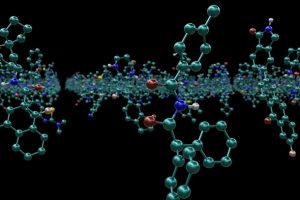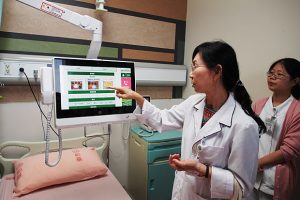· Experts indicate no single test can detect impurities, adulterants of honey
· Recommend making technology accessible at grassroots levels to ensure the purity, safety, authenticity of honey · Eminent scientists, food experts term honey as Ambrosia, in a highly successful series of four webinars ‘Hive to Home’ organized by India Honey Alliance
Renowned experts from across the value chain of honey-making underscored the need to adopt a validated ‘fit for purpose’ and grass-root testing methodology to prevent instances of adulteration in honey in India. Specialists focused on the robustness of existing testing standards in India, which ensure that the consumers get the honey of the highest quality. Dr. Lalitha R. Gowda, Chief Scientist (Rtd.), CFTRI, Mysuru emphasized that while NMR (Nuclear Magnetic Resonance) is a “good biochemistry technique, however for honey, NMR method currently lacks that kind of database to give out reliable and authentic result.”
The experts were speaking at a panel discussion hosted by India Honey Alliance, an association of honey producers, beekeepers, and technology experts formed to create a unified platform to promote the Indian honey industry. The two part webinar was organized to address the issues raised by the result of honey testing done by one of the research agencies in December 2020. Experts agreed that honey cannot be tested for impurities in shops and homes, and hence, the value chain needs to be empowered with science and technology to create a robust, transparent and profitable starting from the beekeepers till the end consumer.
Reaffirming Dr Gowda’s sentiment, Dr. (Mrs) Ajit Dua, CEO, Punjab Biotechnology Incubator, asserted that “there is no single test that can detect all kinds of adulterants and contaminants in honey. One needs to consider a combination of tests to decide upon the quality of honey.”
| **Expert Speak** · India is the only country to impose stringent parameters including authenticity for honey, though adulteration of honey is a global problem. · Purity of honey needs to be decided basis the combination of results of various methods. · Experts and scientists working on developing easy, cheap and scalable technology to enable the apiarists to test quality of honey at their own level. · Fit for purpose” tests (the test needs to be equipped / well suited for designated purpose) to be done, especially, when labs are working in isolation. Single quotation mark · Honey should be rigorously tested at processing level. · It is practically impossible to make any changes in the constitution of the honey post processing. · A proper training of all the future beekeepers to make them aware about all the scientific methods. · There has to be a minimum support price of honey to boost for the beekeepers to sell pure honey. · Honey has an expansive usage in medical practices in Unani and Ayurveda system. · Honey plays an important role in nutrition and cosmetics as it is the only product which is anti-inflammatory, anti-oxidant, and anti-septic. |
Based on the discussions which ensued, IHA and the experts collectively agreed to develop a whitepaper to determine the ‘fit for purpose’ and implementable scientific techniques and methodologies to test honey at the grass root. Further, it was suggested that a lab with state-of-art, cutting-edge technologies be established exclusively for honey testing, which could also house a biobank for different types of authentic honey that are available across the country and world.
Journey of Honey – Hive to Home
Hosted by the newly formed Indian Honey Alliance, the first panel talked about the whole journey of honey and was moderated by Mr. Surendar Sharma, CEO, Patanjali Ayurveda. Eminent panelists included Dr Anu Appaiah- Head, Food Protection (Retired) and Infestation Control, CFTRI, Mysuru; Mr. Arvind Chauhan, Bee-keeper; Mr. Naveen Garg- Director, Kashmir Honey; and Mr. Vinit Singh, Director, Brij Honey.
The second panel discussed the ‘fit for purpose’ technology and was moderated by Mr. Shahrukh Khan, ED-Operations, Dabur India Limited, and included Dr. (Mrs) Ajit Dua, CEO, Punjab Biotechnology Incubator, Mohali, the National Reference Laboratory for Sweets & Honey and Director Punjab State Biotech Corporation; Dr. Lalitha R. Gowda, Chief Scientist (Rtd.), CFTRI, Mysuru; Dr. Kaushik Banerjee, Chairman – India Section of AOAC INTERNATIONAL and Principal Scientist, National Referral Laboratory, National Research Centre for Grapes, Pune and Dr. Rajesh Nair, Director, Centre for Analysis & Learning in Livestock & Food (CALF), National Dairy Development Board.
The third panel talked about the development of bee-keeping at the grass-root levels. The panel moderated by Mr. Deepak Jolly, Secretary General, India Honey Alliance saw participation from stalwarts like Dr. K. Laxmi Rao, Asst. Director, CBRTI, KVIC; Mr. Arvind Chauhan (Apiarist, Entrepreneur); Mr. Bheem Singh (Lupin Foundation); and Mr Ashok Kapoor (Consumer Rights Organization).
Dr. Bhushan Shrikhande, Senior President Technical, Baidyanath, hosted Honey for the Indian Consumer with experts – Dr Younis Munshi, Scientist 4, Ministry of Ayush; Ms. Ishi Khosla (Clinical Nutritionist, Author, and Researcher); Ms. Suparna Trikha (Expert Natural Beauty & Wellness expert).






















